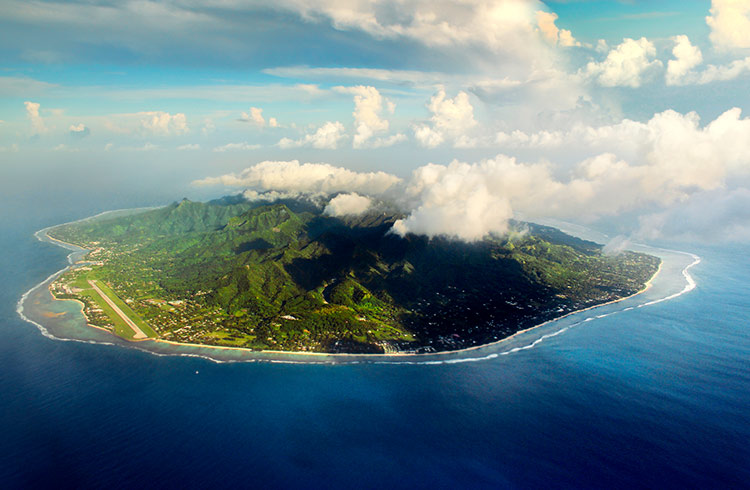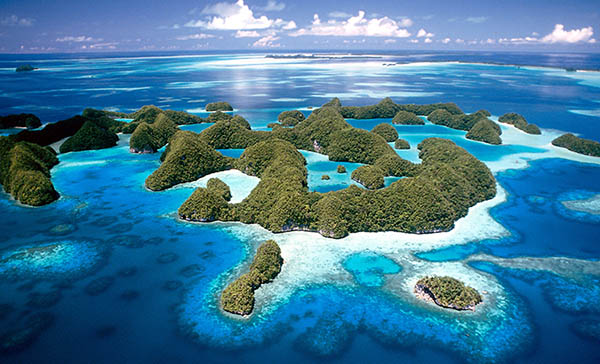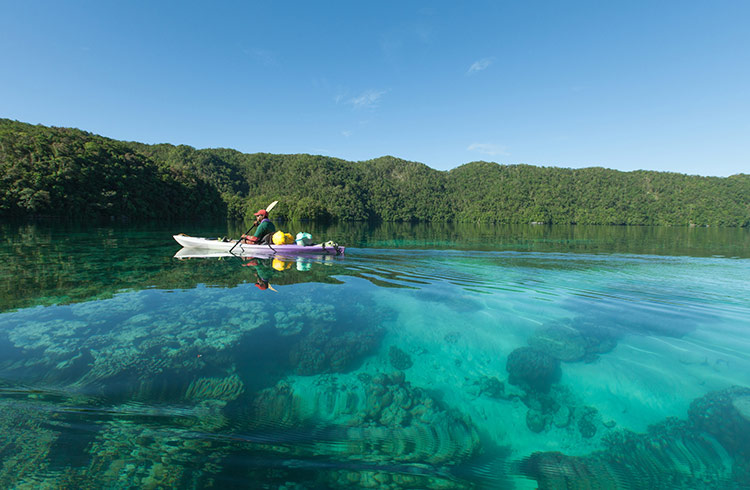How to Stay Safe in the Cook Islands: 6 Safety Tips
Get ready for your trip to the Cook Islands with these handy safety tips, from rental scooters to medical care, here's everything you need to know before you go.
 Photo © Getty Images/Photo by Stas Kulesh
Photo © Getty Images/Photo by Stas Kulesh
This is the quintessential South Pacific island getaway – with white sandy beaches, clear blue lagoons, vibrant coral reefs, and tropical fish all around. The 15 Cook Islands are spread over 770,000mi² (2,000,000km²) of ocean south of Hawaii, west of Tonga and east of Tahiti. Cook Islanders are generally happy, laid-back and God-fearing with a strong sense of culture.
To prepare for your trip, here are a few handy things to know before you go.
- Natural Disasters
- Health
- Scams
- Roads and Rental Scooters
- Access to Medical Care
- Food and Water Hygiene
1. Natural Disasters in the Cook Islands
Due to it's location in the South Pacific ocean, cyclones occur during the peak season, November to March. On average the Cook Islands get one big cyclone approximately every five years – but that's just an average – in 2005 they got five cyclones in five weeks!
2. Health in the Cook Islands
As a tropical destination, the Cook Islands have seen a rise in Dengue Fever. In February 2019 the Ministry of Health declared a dengue outbreak following 40 cases from January to April. The best way to avoid getting Dengue Fever is to keep yourself covered at dawn and dusk with long sleeves, and always slap insect repellent on, no matter the time of day (as well as sublock).
3. Scams and Crime in the Cook Islands
Scams against tourists are unheard of, and petty crime is minimal, but don't tempt fate by leaving mobile phones and cameras carelessly on top of your towel on the beach while you go snorkeling. The most common petty crime is the theft of cash and valuables from the storage bins on rented motor scooters. Always keep everything secure in your bag.
4. Roads and Rental Scooters
If you decide to rent a motorcycle or scooter to get around the Cook Islands, be very cautious. Some roads are in poor condition, and worse at night due to poor visibility with limited lighting. Most accidents requiring hospital treatment involve motorcycles or scooters on the islands.
If you rent any type of vehicle (two or four wheeled) you will need a Cook Islands driver's license. The rental company will issue you a temporary paper license valid until 12pm the next day. After that you need to get an official one from the police station in Avarua. Pay the fee to get a card with your photo on it – and no driving test required. It's kind of an unofficial tourist tax. But don't skimp on the expense, police do frequent license checks and will fine you if you don't have the license.
The license does not magically give you the right to ride a motorcycle legally if you do not have a motorcycle license from home. If you have an accident, medical treatment in Cook Islands is expensive and your travel insurance won't cover you if you aren't licensed in your home country.
The speed limit on Rarotonga is 50km/h, except when riding a motorcycle without a helmet it becomes 40 km/h. Helmets are not compulsory here, but the safety benefits of using one are so universally recognised that failing to do so may cause you problems with your travel insurer if you are injured – they may argue that you didn't take all reasonable steps to ensure your safety. Always wear a helmet, despite the local laws.
The police are also pretty strict at making sure you stay within the legal drink-driving limit, but at 0.08 the Cook Islands limit is among the highest in the world.
5. Hospitals and Medical Care
Hospital and medical facilities are limited and anything complicated usually requires evacuation to New Zealand (expensive, especially if you don't have travel/medical insurance). Hospital treatment for the uninsured often requires an upfront payment, and it isn't cheap.
For a magnificent dive site there is sadly no hyperbaric decompression chamber in the Cook Islands. Do your dive tables carefully, or you mind wind up on a medical flight to New Zealand.
6. Food and Water Hygiene
It's recommended that you drink only bottled water, or sterilize local supplies before consuming.
The Cook Islands are a long way from anywhere and spread out over thousands of kilometers of ocean, consequently the stores may have limited supply and selection of food available. If you've picked self-catering accommodation you might not be able to get the brands or types of food you have back at home. The rules for visitors bringing their own supplies are very generous. Savvy travelers bring suitcases stuffed with goods and vacuum-sealed packed meats. If you fancy your favorite cheese and nibbles at sunset, you might have to bring your own.
Related articles
Simple and flexible travel insurance
You can buy at home or while traveling, and claim online from anywhere in the world. With 150+ adventure activities covered and 24/7 emergency assistance.
Get a quote

No Comments